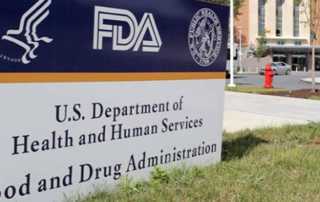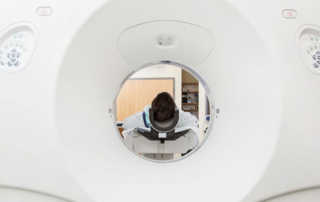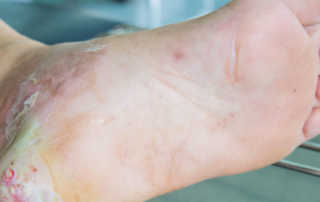Medical negligence is a negligent act or omission by a health care provider in which care provided deviates from accepted standards of practice in the medical community and causes injury to the patient. Standards and regulations for medical malpractice ensure that each and every patient will receive a reasonable standard of care regardless of their age, sex, or race. Medical professionals are required to maintain professional liability insurance to offset the risk and costs of lawsuits based on medical malpractice.
Problems related to medical negligence are widespread
In a recent study by the Harvard School of Public Health, Health Policy and Managment, entitled Accuracy of the Medical Malpractice System: Relationship Between Claims, Errors, and Outcomes of Litigation (2005) the researchers concluded that virtually all claims (97%) involved identifiable adverse outcomes, and most involved serious injury (55%) or death (26%). In 63% of claims, the adverse outcomes were due to error. Reviewers judged the error determination to be a close call in 24% of claims. Plaintiffs received compensation in 57% of claims. The researchers concluded that the impact of frivolous lawsuits may be overstated by physicians and other health care providers.
The Doctors Company, a large physician-owned medical malpractice insurance company, conducted a study of closed or settled claims to determine what percentage of claims were due to system errors. Looking at claims from 2004 to 2006, the researchers found that system errors contributed to 30 percent of settled claims. The most common problems involved medication-related errors (32 percent), communications errors (27 percent), healthcare associated infections (18 percent), medical records errors (13 percent) and identification errors or wrong site surgery (5 percent).
So why does this problem exist? The problem has multiple sources. For example:
In the hospital, residents are required to work excessive hours without adequate supervision. It is estimated that their longest period without sleep during their first year of residency was an average of 37.6 hours, and during a typical work week, they worked an average of 56.9 total hours in on-call shifts in addition to their normal working hours.
A recent survey of doctors and other adults released in the New England Journal of Medicine found that more than a third of the doctors said they or their family members had experienced medical errors, most leading to serious health consequences. The cost to society in terms of disability and health care costs, lost income, lost household production and the personal costs of care are estimated to be between $17 billion and $29 billion. In contrast, the medical liability system costs $6.7 billion annually, about what is spent on dog food each year.
As a result of studies such as the ones identified above, increasingly, hospitals areadopting policies that require them to forgo charges for treatment that involves preventable serious medical errors, also known as “never events.” In its 2008 Hospital Professional Liability and Physician Benchmark Analysis, insurance broker Aon said that “never events” account for one out of six medical malpractice liability claims. As of October 1, 2008, Medicare will no longer pay hospitals for procedures that involve eight types of serious medical errors including operating on the wrong person or wrong site. Vermont’s hospital association said that there should be no payment for eight types of errors. Hospitals in Minnesota and Massachusetts also have adopted never-event policies. Some health insurers are following Medicare’s lead.
It is important to hold health care professionals responsible for their preventable mistakes. Doctors do not police themselves. According to data from the National Practitioner Data Bank, which records all claims paid against physicians, just 5.1 percent of doctors account for 54.2 percent of the malpractice payouts, Of the 35,000 doctors who have had two or more malpractice payouts since 1990, only 7.6 percent of them have been disciplined. And only 13 percent of doctors with five medical malpractice payouts have been disciplined.
Most Recent Medical Malpractice News
Doctor and Hospital Mistakes are the Third Leading Cause of Death in the U.S.
Every year, the Centers for Disease Control and Prevention (CDC) compile a list of the most common causes of death in the U.S. The CDC does not include deaths caused by doctor and hospital mistakes [...]
Encouraging News for Women Filing Essure Lawsuits
Women across the country are filing Essure lawsuits against Bayer, seeking damages for personal injuries caused by the birth control medical device. (In 2013, Bayer purchased Conceptus, the original maker of Essure.) Essure is a [...]
Medical Malpractice Can Cause Kidney (Renal) Injury or Worsen Renal Disease
Medical malpractice or negligence can cause injury to a patient's kidneys or worsen a patient's kidney (renal) disease. This can occur when doctors fail to diagnose a patient's kidney injury or disease, fail to diagnose [...]
FDA Advises Doctors to Stop Prescribing Fluoroquinolone Antibiotics for Certain Infections
The U.S. Food and Drug Administration (FDA) released a statement on May 12, 2016, advising doctors to stop prescribing fluoroquinolone antibiotics for certain infections that can be treated with less harmful medications. According to an [...]
Early Cancer Diagnosis
The American Cancer Society has reported that cancer now accounts for nearly one in four deaths in the United States. In fact, an estimated 555,500 Americans died from cancer in the year 2002 and over [...]
Diabetic Footcare
Foot problems are among the leading causes of hospitalization for the 16 million people in the United States with diabetes. Hundreds of million of dollars are spent annually on treatment. It has been estimated that [...]







